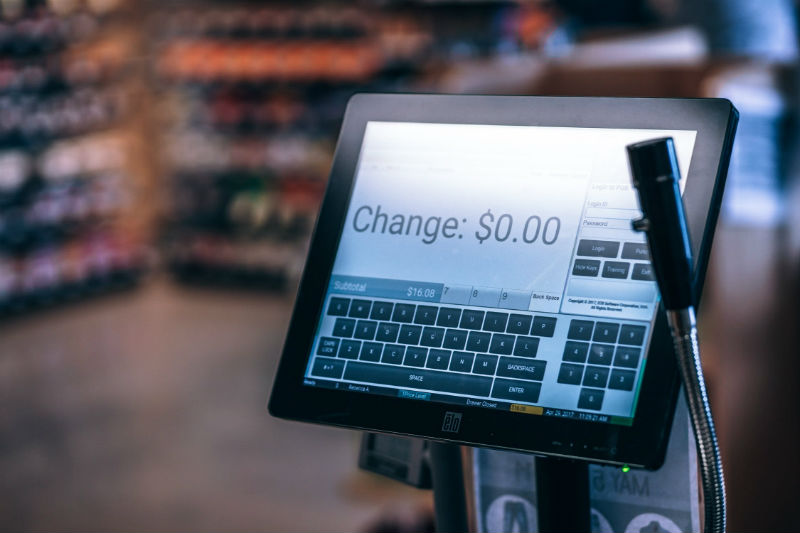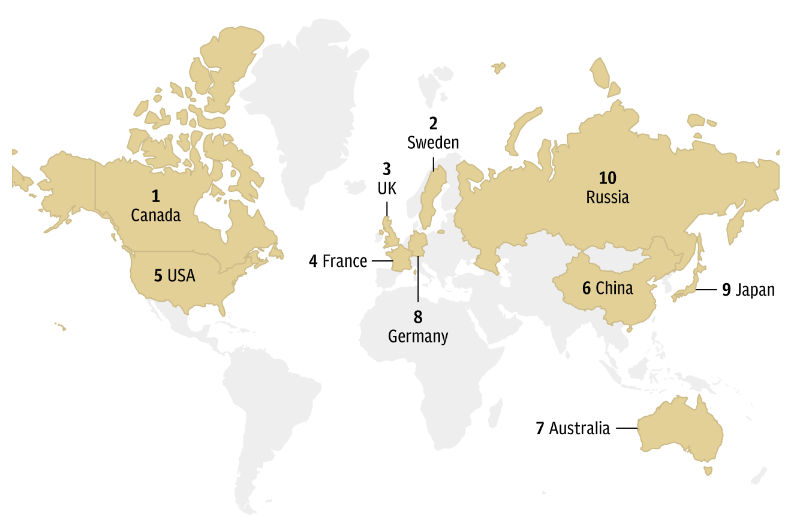Why Sweden refuses the idea of full transition to non-cash payments

Image: Pexels
HSBC Bank in its recent report called the transition to non-cash means of payment one of the main trends of the current year, along with the development of blockchain technology. In many countries, this trend is already visible now - there are even ratings of countries in which non-cash payments are most developed.
However, not everything is so smooth, and in a consistently occupying one of the first places in such ratings of Sweden there was a public debate about whether the society should strive to completely refuse cash. The history of this published edition of the Guardian, the main theses of the material, read our article.
')
Sweden and cash withdrawal
This Scandinavian country is one of the world leaders in the development of contactless payments, ahead of all European countries. Many Swedish citizens do not use cash at all in their lives, and the number of shops and cafes refusing to accept cash is constantly growing .

Source: Forex Bonuses
However, not everyone in the country is happy with this state of affairs. And if more recently, the voices of critics were practically unheard of in the general chorus of admirers of the idea of giving up cash, recently this discussion has flared up with a new force. The main thesis of opponents of the transfer of the sphere of finance to online is the growing dependence on transnational corporations and the increasing risks of various attacks.
The main theses of opponents of the "digitalization" of finance
The chairman of the Swedish Central Bank, Stefan Ingves, also belongs to the camp of opponents of a complete refusal of cash. He stated the need to develop new legislation that would help ensure public control over international payment systems. In his opinion, the possibility of sending and receiving payments is a “public good,” comparable to the judicial system, public statistics or the sphere of defense. “Most citizens would not want to transfer such social functions to private companies,” the functionary said.
He is supported by the former MEP from the Pirate Party of Sweden Christian Engström, who is convinced that "if you control the servers of Visa and MasterCard, Sweden is in your hands."
Politicians are concerned about the country's dependence on payment instruments that are not fully controlled by the state. In this case, in the event of a serious international crisis and a hypothetical restriction of access to these tools, people in the country may experience difficulties in paying for their basic needs and receiving money.
On the other hand, some IT professionals point to increasing information security risks. According to IB-consultant Mattias Skarets, a complete refusal of cash is “impossible” and it’s naive to really count on him. As an example of possible problems, he cites the situation with failures in the processing of card payments, which over the past year occurred with two large Swedish banks. There are also cases where hackers managed to find gaps in the protection of digital payment systems and steal money from people, including pension savings .
Perspectives
According to public opinion polls, currently a quarter of Swedish citizens (25%) support a complete rejection of cash, while almost seven out of ten respondents would prefer to retain the ability to use various means of payment. In the meantime, the country's parliament is conducting an internal analysis of the legislative initiatives proposed by the central bank - the deputies will consider all possible difficulties associated with both the use of cash and the rejection of them.
Other materials on finance and stock market from ITI Capital :
- ITI Capital Educational Resources
- Analytics and market reviews
- Distrust of authority and economy: the main trends of millenial investment activity
- Where it is more profitable to buy currency: banks vs exchange
- How the implementation of trading systems with artificial intelligence will affect investment management
- Bloomberg: how Ilon Mask’s sale of flame throwers will change start-up financing
Source: https://habr.com/ru/post/353988/
All Articles